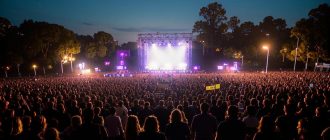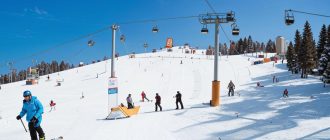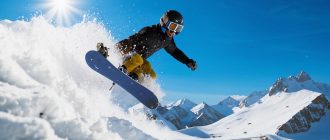There are many stereotypes about professional sports. Sometimes it seems that it is extremely difficult and not everyone can get into it, especially not all people with special needs. However, Special Olympics has been proving time and time again that this is not the case. Sport is about overcoming challenges and reaching new heights every day. It unites millions of people around the world, and most importantly, there is room for everyone. After all, one of the main features of sport is inclusion.
In the joint project of “Championship” and Coca-Cola in Russia we will talk about the Special Olympics and junior competitions and tell the story of professional athlete Ksenia Byakhova and her coach Mikhail Artamonov.
A bit of theory: what are Special Olympics and Unified Sports and how did Coca-Cola get involved?
Sport helps to unite seemingly completely different people. Inclusion gives everyone with physical and intellectual disabilities the opportunity to lead an active lifestyle, travel and compete on an equal footing with everyone else.
Inclusion is the process of including all people in active social life.

Since 1968, Coca-Cola has been a founding partner of the Special Olympics, and since 2015 this movement has been actively supported by Coca-Cola Russia. Together they organize international sports competitions for people with intellectual disabilities. Under the program, athletes can compete in both winter and summer sports. In addition, athletes are not divided by nationality, so there is no team scoring at the Special Olympics. Also, there are no losers, as no more than eight competitors compete in each division, and there are also eight places on the podium.
This is interesting! Since the organization’s existence, more than 3 million people from 180 countries have joined the Special Olympics movement. In 2022, the Special Olympics will be held in our country for the first time. The World Winter Games will be held in Kazan, and Coca-Cola Russia will be the official partner of the competition.
One of the important tasks of Special Olympics is to organize inclusive competitions, for example, unified matches, when people with and without special needs play on the same team. Over the past few years, more than 10 unified soccer matches have been held in Russia. In addition to athletes, they were attended by famous actors and singers, politicians and businessmen – everyone who wants to show how important it is to actively include people with developmental disabilities in society.

In addition, since 2018, the traditional Coca-Cola Christmas Caravan has been organized in an inclusive format. And in 2020, it will be organized online for the first time. As part of the program, the company will transfer 1 million rubles to the charity foundations “Anton Tut Nearby”, “Gulfstream”, “Ronald McDonald House” and “Sunny City”. Anyone can increase this amount by subscribing to the Christmas Caravan account in Instagram until December 30. For each subscriber, Coca-Cola Russia will donate an additional 10 rubles to charity.
Ksenia Byakhova: “Sport is our life and health”
Sport is a story about equal opportunities, conquering new peaks and unwavering pursuit of goals. And who but inclusive athletes know more about overcoming themselves on a daily basis? Track and field athlete Ksenia Byakhova, an absolute champion in snowshoeing at distances of 800 and 1600 meters and repeated champion of Russia in track and field athletics at 1500 and 3000 meters, shows by her own example that sport is not a privilege, but a way of life available to everyone.
Since childhood Ksenia was very active, especially she liked to run. But the matter did not go further than a usual hobby. At the age of 18 the girl moved to an adult boarding school, where she met the coach Mikhail Artamonov. That’s when her path to professional sports began.
“As a child, I mostly liked to run, play pioneerball, volleyball. And then I chose the sport that I needed professionally – track and field, so that I could participate in the Special Olympics, go to competitions, get medals and enjoy myself.

But there were times when people discouraged me and told me to quit: “You don’t need it. And I answered: “No, I want to be a professional, I want to go [to competitions], I like it, because sport is our life and our health”. I don’t know, maybe they envied me that I was starting to travel, that I was doing well”.
Ksenia has had to face difficulties many times, but she managed to overcome them successfully. Even when it seemed like everything was going against her.
“We were supposed to have a snowshoeing competition, and it so happened that there was no snow where we were supposed to train. But I still prepared: running on the treadmill with weighted weights, swimming with weighted weights, working with harnesses.”
Ksenia started with short distances, but gradually moved to longer distances.
“The coach started to put me on distances of 400 meters – they worked out, then I moved to 1500 meters – they also worked out. I am small, and I need to run only such long distances, because I have both endurance and speed.”
The athlete trains daily: one session in the afternoon is a warm-up session, and the second session in the evening is the most difficult.
“During training we use weighted weights – on the arms, on the legs, we wear a special mask that limits oxygen. Sometimes I run with parachutes – they slow down movements. To keep me from getting bored, the coach always comes up with something new.
Sometimes I don’t feel like going to training. But I force myself: I have to go, I have to train, I have to do what the coach says. I come even when I have pressure. But Mikhail Olegovich(Ksenia’s coach – “Championship” note) always notices such things and sends me to rest”.

During the preparation for competitions Ksenia especially likes training camps. There she meets her friends-athletes from all over Russia and trains together with world champions.
“Thanks to sports I have made a lot of friends. Even all the coaches know me. When I run in competitions, I get support from all over Russia.”
By the age of 28, the athlete has many medals and awards, but the main victory, according to her, was a prize-winning place in the 1600 meters snowshoe race at the All-Russian Games in Yoshkar-Ola.
“Such a distance is very difficult for girls to run, and only boys were entered. My coach and I consulted and decided that I would still run [with them]. As a result, I took second place.
Another significant achievement for Ksenia is the 10km distance. She conquered it at a competition in Yekaterinburg. Although she participated in such a race for the first time, she managed to run out of 45 minutes. But the athlete is not going to stop at what she has achieved. In the nearest plans – to get the title of candidate master of sports, to get to the Special Olympics World Games and… to run a marathon!
“I will advise beginners only one thing: train, don’t quit sports and listen to the coach!”
Mikhail Artamonov: “I am amazed by their persistence, but thanks to this the result is obtained”.
Mikhail Artamonov is a Special Olympics coach with 28 years of experience, 14 of which he has been working with people with special needs. He learned about the organization almost by accident. After attending a Special Olympics competition, the man decided to join the organization himself.
“When I was called to work in our boarding school, literally in six months I was offered to participate in the Special Olympics competitions, which were in Moscow. My kids were selected and we went to Yoshkar-Ola. It was my first big competition – I had no experience in Special Olympics at that time, I didn’t even know the rules. But I got so many impressions: I brought the guys, heavy category athletes, and they took places: they brought gold and bronze. It so happened that Moscow had not traveled to these competitions for a long time. And then we came back with all the medals. Naturally, we immediately started to study the rules and seriously started to prepare.

In working with special athletes, an individual approach is important. But this is the key to success in the case of any athlete, Mikhail believes.
“Everything is very individual. You can’t even shout at someone, because if you raise your voice just a little bit, the person immediately loses it. And someone, on the contrary, needs a command in an elevated tone to get the point across. I compose groups so that the character of the children fit each other, there was no friction within the sections. I join the young with the older ones so that they learn from the adults. And the difficulties? I can’t say that there are any. Our students feel that you give them everything, and like a sponge, they absorb it and give it back to you. I am amazed at their persistence, but thanks to this, the result is obtained.
Working with athletes with special needs requires a coach to be flexible and responsive. You have to be able to adjust, adjust your training plan on the fly and find a common language with your charges. But education alone isn’t enough for that.
“It has to come from the person. You can have at least ten degrees, but you will not find an approach to our kids. Or a person can come conditionally “from the street”, become an educator and children will be attracted to him, despite the lack of pedagogical education. But it is still necessary to study.
In fact, the difference between athletes with and without special developmental needs is not as great as is commonly believed. Everyone has abilities and potential, which can be clearly seen during junior competitions.
“When athletes are in the same uniform, you can’t feel the difference. Even we – those of us who work in this field – sometimes find it difficult to tell who is a partner and who is an athlete on someone else’s team. Overall, unified competition is a very important program not only for the guys, but also for the community. When I first started 15 years ago, people were a little prejudiced. But after these years they react in a completely different way, immediately there are kind people who really want to help to the best of their ability. Now it’s a completely different story, I think it’s largely thanks to the Special Olympics program.

Sports really help children with special needs find their place in society and better socialize.
“They socialize both at competitions and after, they influence each other well. And thanks to the division system, they compete against their peers. It’s very important and helps them feel important. When children put on the national team uniform, are selected and go to international competitions, they are responsible for the whole country. You should see how proud they are when they walk with the inscription “Russia”, ringing with medals”.
Ksenia is a vivid example of how sport can change a life. In 2011 she took her first “gold” in track and field, and today she has fifty medals and a CMC title on the way.
“Character also plays a big role. Xenia is a fire, a volcano. Sometimes you can splash water on it and steam will come out, but the volcano itself will not go out – it only gets hotter. It’s good that she directs all her energy into sports, in the right direction. For her, sublimation through sport is wonderful.





